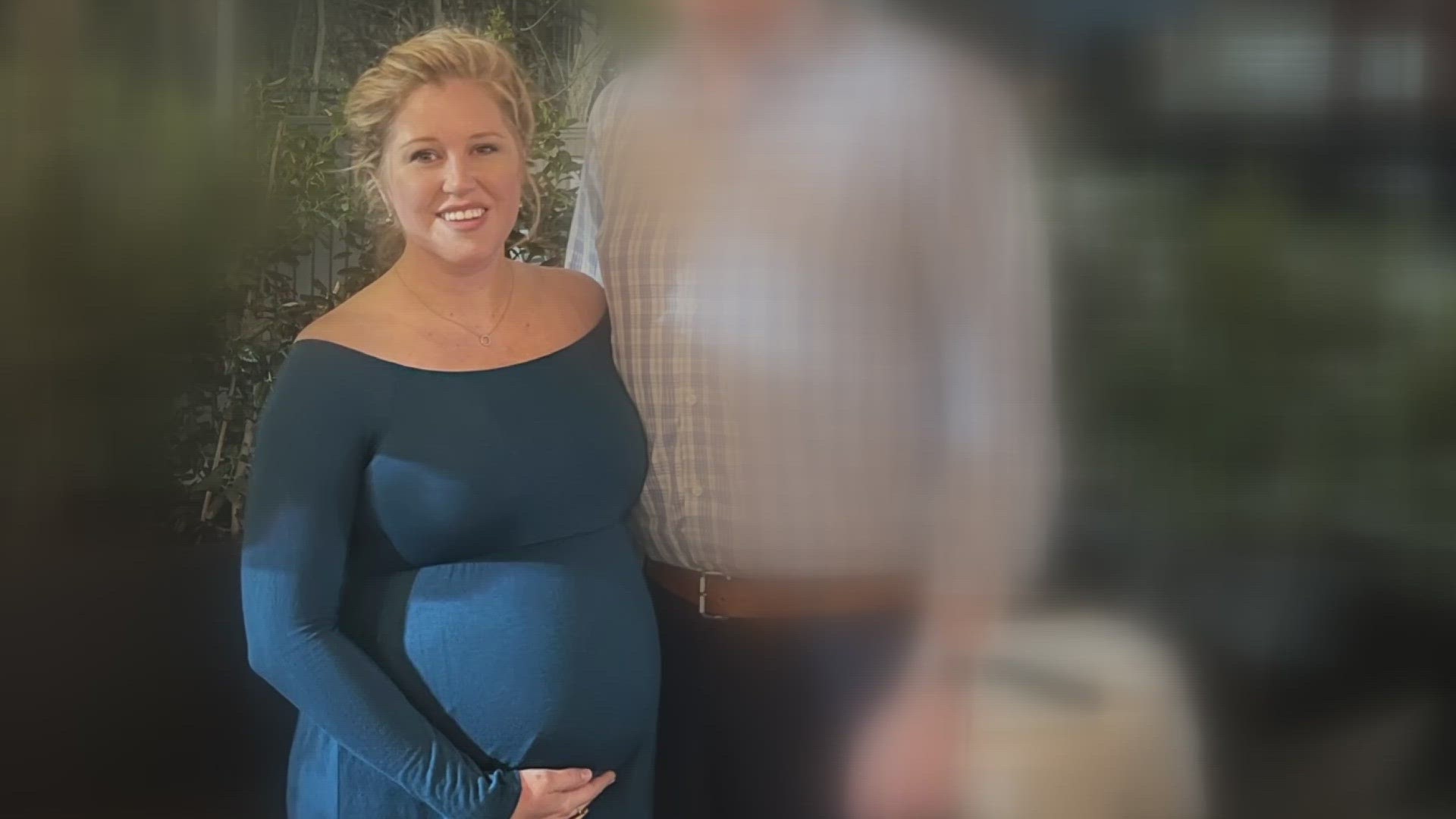COLORADO, USA — Colorado lawmakers are once again considering new legislation that would further increase and protect abortion access in Colorado.
Meanwhile, Colorado continues to see an influx of people traveling to this state for abortion services.
One Democrat-sponsored bill, SB188, would protect the patients seeking that care and the providers who treat them, from outside legal threats.
After extensive testimony from supporters and opposition, the bill passed Senate Committee 3-2, along party lines.
One of people who testified in favor of the bill was a woman who had traveled to Colorado seeking abortion services, who said she lived through the fear of potential legal consequences.
LAUREN’S STORY
Lauren Miller wanted to get pregnant.
She and her husband already had one son when they began to “try” again for a second. Soon enough, it happened.
“As we say in Texas, this is not my first rodeo,” she said by Zoom from her home in Dallas, Texas. “I have a 20-month-old son, I thought I knew what I was getting into with this pregnancy.”
But very little about her second pregnancy is comparable to her first.
Early on, Miller became very, very sick. During a trip to the ER , she said she was diagnosed with Hyperemesis Gravidarum.
And it wasn’t just one baby. She was pregnant with twins.
“I always wanted three kids. Since we already had one, finding out we were pregnant with twins was very exciting!” she said.
A few weeks later, during an appointment in her 12th week of pregnancy, Miller said everything changed.
“[Doctors] started seeing some abnormal growth, large fluid masses in the skull of ‘Baby B.’ With additional testing, we found out he had Trisomy 18. And while everything was OK with ‘Baby A,’ as we’re going through, we’re seeing more and more issues with ‘Baby B,’” she said.
“Multiple doctors, [genetic] counselors [said] that ‘Baby B’ was not viable. It was just a matter of time. And every day he continued to develop, he put his twin and myself at risk,” she said.
“That was really where the conversation ends.”
Texas has very strict limits on abortions. Miller said her providers, fearful of legal consequences, were unwilling or unable to give her clear options.
“It almost feels like we’re talking in code, because nobody wants to say the world ‘abortion’ out loud here,” she said.
“We were in this horrible place where there wasn’t a decision to be made but we couldn’t take action here in Texas. And it was a relief, in a way when one doctor - I’ll never forget - out of frustration, tore off his gloves, threw them at the trashcan, and said, ‘I can’t help you anymore, you need to leave the state.’ That was the most clarity we’d had at that point.”
Miller said, through a friend, she connected with a doctor in Colorado. She was still suffering from severe morning sickness but, after another ER trip, boarded a plane with her husband to Denver. Concerned about the Texas laws, they debated whether it was safe to use credit cards, share information with insurance companies, or even use rideshare services during their trip.
“The laws in Texas are so confusing, you don’t know who wants to be a vigilante," she said. “We didn’t know who was going to sense what we were doing and turn us in.”
Once in Colorado, Miller said she was able to finally have open and honest conversations with doctors, who advised her what to do next. At this point she was 15 weeks pregnant.
“The procedure is called a ‘Single Fetal Reduction.’ It’s pretty remarkable science to be honest. Because, decades ago, all three of us may have been lost. Now doctors can do a single potassium chloride injection directly into the heart of an unviable twin. That stops his heart and saves the other twin and myself,” she said.
“It’s heartbreaking when you have to do this. Because we are very much at a stage where this is a wanted pregnancy, and we think we’re going to be carrying it through to term and having this child.”
She said, so far, there have been no legal threats against her and her husband for their Colorado-based procedure. But “fear” was a constant feeling during this pregnancy.
“Everybody’s heard for years, ‘Let’s leave this to the states.’ But what happens when the state isn’t content with what’s going on inside their own borders?” she said. “This is where that ‘shield’ law [SB188] can actually protect people in Colorado.”
Now Miller and four other women are working with the Center for Reproductive Rights, and are named as plaintiffs in a lawsuit against the state of Texas.
All five claim they were denied “necessary and potentially life-saving obstetrical care” because Texas medical providers feared liability under Texas abortion bans.
Months after her trip to Colorado, Miller said “Baby A” remains healthy and she is healthy, too. She’s 38 weeks pregnant now and is expecting to deliver any day.
“I’m really excited to be in last few days and meet our son. It won’t be until I count every finger and toe that I’ll be relieved.”
SUGGESTED VIDEOS: Latest from 9NEWS

